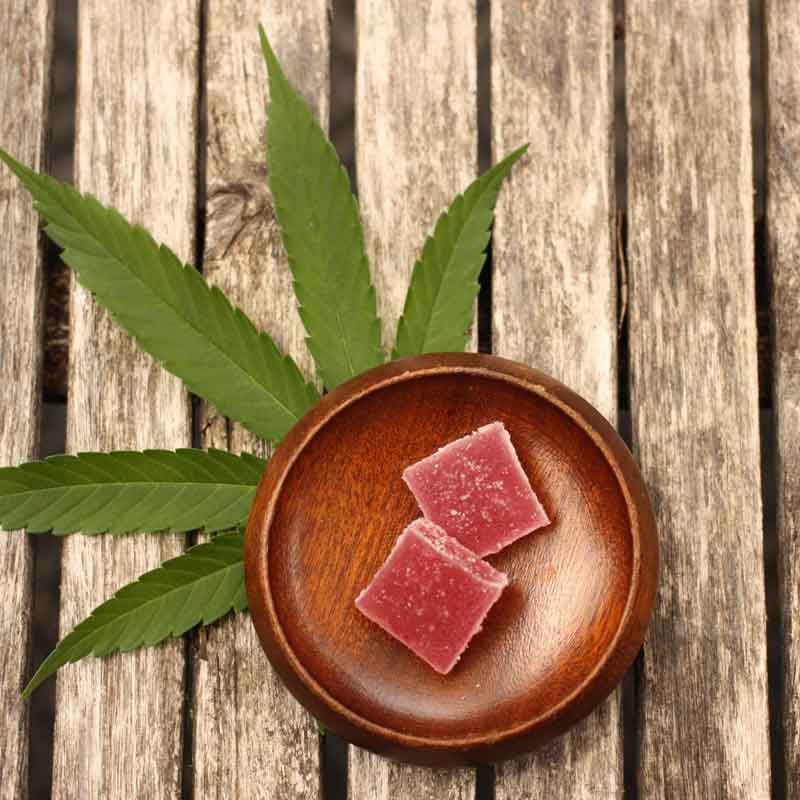A good night’s sleep is a treasure many people struggle to achieve. Without quality sleep, our emotional and physical well-being declines. There’s mounting evidence that cannabis for sleep can help you achieve better rest.
Overall, we spend 1/3 of our day resting, but when we’re overly busy or unable to unwind, that amount can be much less, which is not good. In addition, other factors interfere with sleep: an overactive mind, too much light, our electronic devices, caffeine, alcohol, noise, overstimulation and physical issues like pain.
If you’re reading this article, you probably have struggled with achieving good sleep.

We have to preface this blog: there hasn’t been enough research on cannabis on sleep. Furthermore, because cannabis is federally illegal—the institutions that conduct sleep research can’t work with cannabis because of federal funding.
It’s always wise to discuss cannabis use with your physician, especially if you’ve previously been treated for sleep issues.
If you want to try cannabis for sleep, your first focus should be sleep hygiene. Some traits of good sleep hygiene are mentioned above, and theoretically, they should help you sleep. But, you’re like 30 percent of all Americans, and you’re still tossing and turning or having trouble falling asleep—that’s when you turn to sleep medications or herbal supplements. About 4 percent of all Americans take a prescription sleep aid, and those pills have side effects and issues with overuse, as well as rebound insomnia when discontinued. Plant-based medicines like chamomile, valerian root, and cannabis tend to be gentler and don’t have the same harsh side effects as synthetic medications.
Around 70 percent of people who use cannabis medically use it for sleep.
Four properties in cannabis—THC, CBD, CBN and terpenes— are believed to improve sleep. From what’s known, they work best together—we’ll call that cannabis synergy.
THC is the psychoactive ingredient in cannabis, and it’s what gets you high; CBD is non-psychoactive and has a calming effect and can be used to balance THC in cannabis; terpenes are the part of cannabis that gives it a distinctive smell like pepper, pine, lemon or cheese, and CBN is created when THC degrades due to exposure to light, heat or air. So older flower you might have around will have more CBN than fresh flower. The terpenes in cannabis have different effects, so choosing a strain high in relaxing terpenes is the best way to start your chill session. If you’re seeking relaxing terpenes—in your cannabis, ask your budtender for flower with Myrcene, Beta-Caryophyllene, Linalool, Beta Pinene and Terpinolene.
THC, CBD, CBN and the correct terpenes have a relaxing effect that may help induce better sleep.
Science Lesson
Here’s how it works—according to the National Sleep Foundation, “It is believed that the sleep-promoting effects of cannabinoids are due to their interactions with cannabinoid receptors in the brain. When cannabinoids bind to these receptors, they send messages to increase sleep-promoting adenosine levels and suppress the brain’s arousal system. Together, these effects may help cannabis users feel sedated or sleepy.”
Finding the Right Dosage is Crucial to Success.
We’re big fans of microdosing cannabis. It’s an easy way to find out what works for you and to avoid some of the after-effects of consuming too much cannabis for sleep. Start small, one or two puffs if you’re smoking and if you’re using a tincture or an edible—try a 5mg dose to start and see how it works for you. After that, you can adjust based on your experience and cannabis tolerance.
What’s the Right Strain?
There’s a lot of talk about Sativa or indica and whether a strain really matters. When choosing cannabis for sleep, researching relaxing strains will help you determine whether what you consume will help relax you or make your sleep issues worse. Leafly has an excellent strain guide, and Pharmhouse budtenders are always willing to make suggestions.
Smoking vs. Edibles.
We tend to favor cannabis edibles for sleep only because of their long-lasting power. While an edible will take longer to take effect, it stays with you longer, too. But, this is a matter of preference and practice. You’ll want to consume your edible as part of your getting ready for sleep routine—maybe a half hour to 45 minutes before you want to fall asleep. We carry edibles and tinctures formulated with THC, CBD and CBN for sleep. If you choose to smoke, you can do that right before you brush your teeth and hop between the sheets, but don’t smoke in bed!

Cannabis Might Help with Sleep Apnea.
Sleep apnea is a condition where the sleeper has frequent obstructions of breathing that can last from a few seconds to several minutes. Sleep apnea causes a person to wake up throughout the night and disturbs the sleep cycle. As a result, people with sleep apnea are prone to headaches, daytime drowsiness and irritability. There has been limited research on using cannabis to help with sleep apnea—a small study with 17 people showed promise, but it’s not enough participants to give us faith in the result. What researchers are learning, though, is that THC can help restore breathing stability with serotonin signals to the brain.
Love Your Dreams? You Might Miss Them if You’re Trying Cannabis for Sleep.
One of the biggest complaints people have about using cannabis for sleep is that it interferes with dreams. However, THC brings people to a deeper stage of sleep early on. Dreams occur when we’re in Rapid Eye Movement (REM), which is the first and lightest phase of sleep. and If you enjoy your dreams—cannabis that’s high in CBD and low in THC might help restore some of the REM dream sleep and help you relax, too. If nightmares or dreams from trauma are an issue, then you’ll enjoy the calm of a cannabis-induced snooze.
Try, Try Again.
If you’ve had trouble sleeping in the past, then you know that experimentation is key to getting it right. Achieving results using cannabis for sleep might take a few different product combinations and working on the timing of ingestion.






